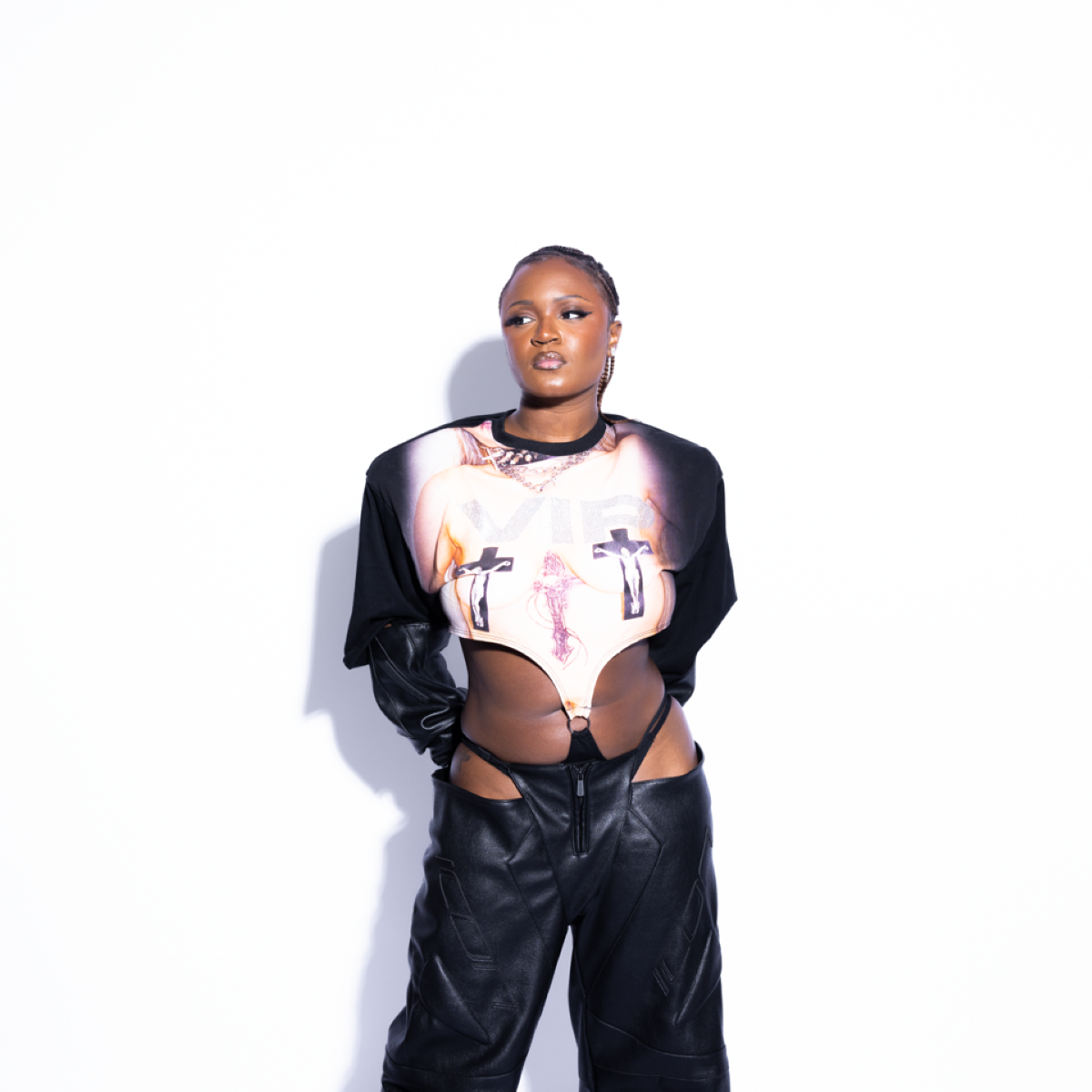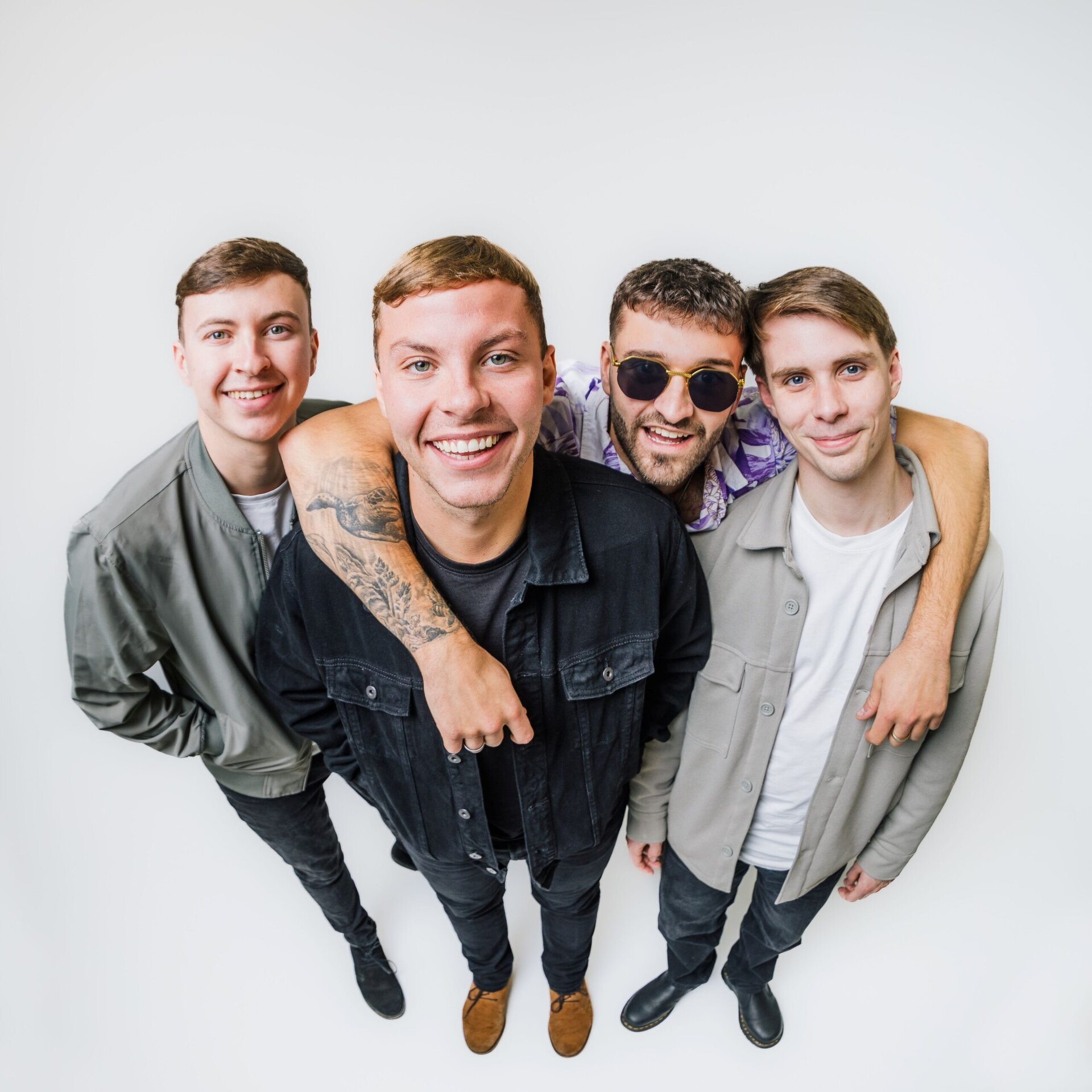Amaarae joined Dotty on Apple Music 1 to coincide with her sold-out shows at London’s Outernet. The Ghanaian-American singer-songwriter talks about her acclaimed album ‘Fountain Baby’ and not wanting to make the same album twice, being snubbed by the Grammys even though she had a critically acclaimed album. She also shares her thoughts on what she would do if she was Tyla’s A&R and discusses the Afrobeats scene as well as her admiration for artists like Gabzy, Melvitto and Victony who are pushing new and exciting sounds from Africa that are outside the box.
Key quotes below — credit The Dotty Show on Apple Music 1.
Amaarae tells Dotty about her surprise at being ignored by the GRAMMY’s for her album ‘Fountain Baby’…
Amaarae: Well, I actually had wanted to be nominated for at least five Grammys, but that did not happen.
Dotty: Is that like a real thing? Did you go into this thinking when these Grammy nominations land, I’ve got to be in there, surely.
Amaarae: Yeah, a thousand percent for sure. For sure. A thousand percent. There was not a doubt in my mind, especially because it was so critically acclaimed. So it was in all the right spaces and in all the right faces. But I guess
Dotty: Were you disappointed in that or did you just pick yourself up and keep it moving?
Amaarae: I was sad for one week, I’m not going to lie, but then I was just like, all right, whatever. I got to the point where I guess I was just like, it’s ultimately for the fans and I think that I can respect what I’ve done, and I think that a lot of critics and a lot of people can respect it. So that’s just that. That’s what it has to be.
Dotty: Does it make you in any way disenfranchised with the music industry where you get to a point where, what do I need to do then to be recognised? Or does it just fuel you to just go back in the studio?
Amaarae: I think that you get to a point where you realise that you have to decide what is the reason that you’re doing this for. So for me, I’m doing it for me, my fans, and God, that’s it. I’m the vessel for God. So it’s now at a point where I’m not bothered too much actually about anything outside of the fact that when I drop records, I want people to feel good and I want them to do well as far as culturally and people receiving them. Well, that’s about it.
Amaarae on being the princess of Pop and her hopes for Alté artists to get the same success as those making Afrobeats…
Dotty: Four years ago you said to Pitchfork that you want to be the quintessential African princess of Pop. How close are you to that now?
Amaarae: I don’t know. That’s a great question. I don’t know. I guess you probably have to ask the people. You know what? I wonder if my sentiment about that has changed even because now I don’t know if I see myself as a princess of Pop. More as just a really cool rock star who’s on the cutting edge of what African music is, and it’s probably one of the most boundary pushing African artists. So I think that my perspective on that has probably changed.
Dotty: We often say on this show when we talk about you, that you transcend genre. We know that music from the continent has been blowing up and people like to call any artist with African heritage, afrobeats. It’s a catchall phrase that everything sits under. You don’t sit under that in any way really, because it feels as though you play with sound and you’re not bound by any particular sonic. How important is it to you though to see that growth of the continent and to know that your roots are in this space as much as you fly away from it?
Amaarae: It’s the most important thing to me. I think that at the end of the day, even though I have many other influences and so many other cultures have impacted what I do musically, I’m still an African and that is still the most important thing for me to represent. So if I’m in Ghana, in Nigeria, and I don’t hear my music being played because it’s too Alté or it’s this or that, that actually bothers me. I feel like I want to see now for the future of African music, a space in which different types of artists can thrive and can be properly represented. I think our two artists that I love are Gabzy and Melvitto, and they do crazy numbers. Gabzy just packed out a Somerset House, 3000 fans, but he’s not the craziest on social media. When I think about a Victony, but these are people that do a different type of African music. They’re not really Afrobeats artists. Gabzy has this kind of very slow, airy r&b feel. Victony has this very, it feels very grassroots and very syrupy. So I want to see us be able to have alternative African music, African pop music. We have street rap, we have African drill. I want us to see that these are properly being categorised and properly being accepted and acknowledged so that all artists can thrive. Because right now, so many artists feel pressured to come and make Afrobeats, and it’s just killing the vibes. It’s killing the vibes.
Amaarae on the success of the Latin American sound and how far the mainstream market is from understanding that there is so much to the fabric of African music…
Amaarae: I think we have to even stop trying to care about what the mainstream thinks. What does a white girl that likes Taylor Swift going to tell you about an African artist? They don’t know. That’s not their culture. I think we need to focus on building our systems and building our foundations and our infrastructure so that we can exist. Look at the Latin American world. They don’t even speak English in their music. They’re not seeking outside validation. There’s an artist like Rosalia. There’s artists like Bad Bunny, there’s artists like Tokischa, and these are three completely different artists. Artists like Matthew Peluso, like the artists that I’ve mentioned come from different spaces, different countries, different sounds, but they’re all able to thrive in their ecosystem and they’re also not speaking English, and they’re also all on each other’s records. And there’s also an entire ecosystem. There’s also an entire award system that validates what they do, all of their different genres.
Amaarae discusses Tyla and what she would do to her sound moving forward…
Amaarae: Lemme tell you, I really would love to exec produce an a&r projects for other artists, and other artists really need to start asking me.
Dotty: Who would you love to do it for?
Amaarae: Tyla?
Dotty: Is that because you think she needs it or because you think that there’s all the potential there?
Amaarae: I think there’s all the potential there. She should have a record like ‘Princess Going Digital’, you know what I mean? I love the stuff that she’s doing and I think they have a sound for her, but I would love to see her get a little riskier with it. And she’s cute too, so that’s going to be easy for her to pull off easy. But she has a great voice also. But I think that just from hearing the stuff that she’s done, they have a sound and it’s quite slow. It’s very pacey, but I would love to see her just get in a bag that’s a bit more energetic.
Dotty: Tyla, if you’re listening, Amaarae is on standby. The album’s not out yet.
Amaarae: You never know.
Amaarae on her album ‘Fountain Baby’ and what her next project may sound like…
Amaarae: I don’t know. I don’t know, but I definitely know that I don’t want to make Fountain Baby again. So that’s the most that I can probably tell you.
Dotty: Like a complete departure from that.
Amaarae: It would probably be likely. Yeah. I just think that as an artist, I owe it to myself to try to push my boundaries as much as I can. Kanye West is one of my favourite artists and I don’t think he’s ever done the same thing twice as far as the best parts of his catalogue. So that’s who I think I’m going to take a step from and try to do something surprise my own self again.
CONNECT WITH AMAARAE:















